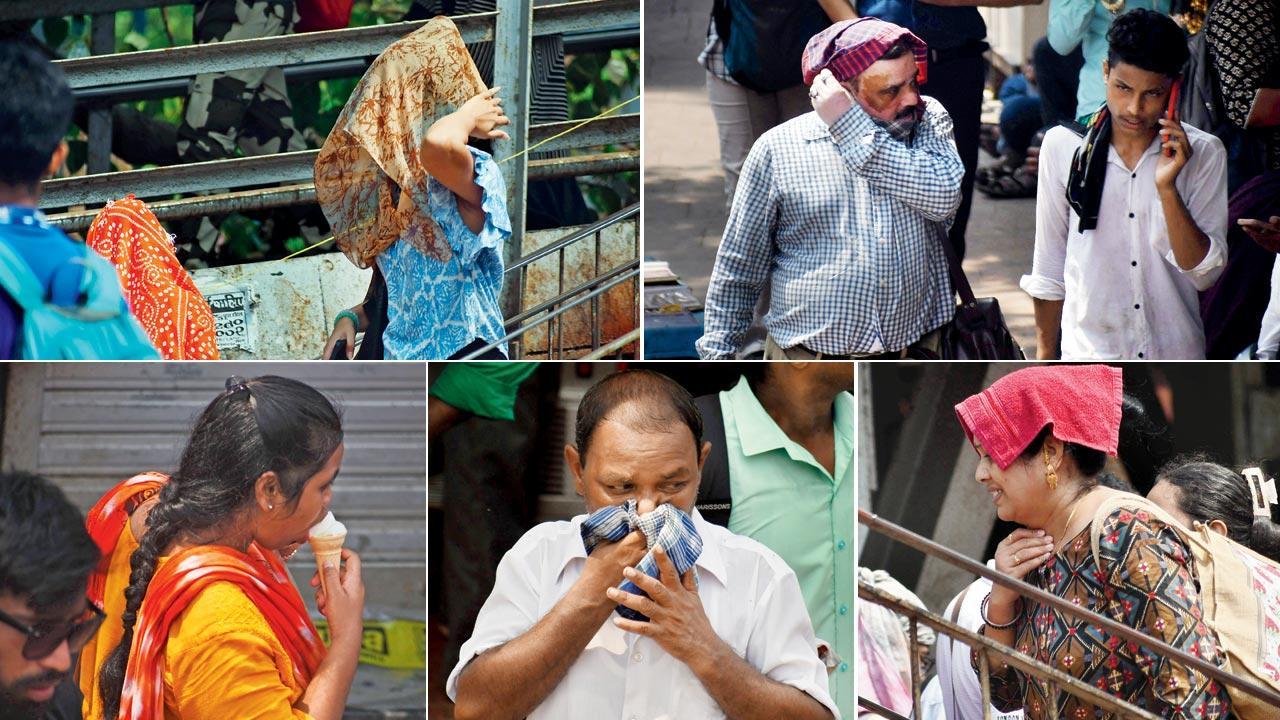Voting at the height of summer? Doctors warn people with cardiovascular conditions to be particularly mindful when stepping out in the blazing sun

People struggle to handle the heat in the city. Pics/Ashish Raje
As the Lok Sabha elections began on Friday with the first phase in five of the 48 constituencies in the state, doctors have called for caution on the part of voters to avoid heat-related health complications.
ADVERTISEMENT
According to data from the public health department, there have been 82 heatstroke cases in the state since March. Just earlier this week, the city recorded 39.7 degrees Celsius, the hottest it has been in the last few years.
“Heatstroke is an extreme event, but there are other issues that can be a problem, like heat exhaustion, in which people feel tired and dizzy,” said Dr Vimal Pahuja, a physician at LH Hiranandani Hospital. He added that this leads to a dip in water levels in the body, making the body prone to infections. “There have been cases where people have had a UTI because there has been a lot of water loss without the person realising it,” he said. Dr Monica Goel, another general physician who practices at P D Hinduja Hospital and Sushrusha Hospital, said, “We have seen a rise in stomach infections like gastroenteritis. This is common as people end up consuming foul water at times in summer months.”
Both these doctors said that those with pre-existing cardiovascular conditions need to be particularly mindful when stepping out. “Such individuals can choose to cast their votes earlier in the day or in the early evening hours,” said Dr Pahuja.
Dr Goel said, “Adequate water intake at frequent intervals is needed at any point in the day for everyone, but this is more important for those with illnesses. People need to carry their water bottles on voting days.”
‘Infants can develop a high fever’
Vasai-based paediatrician Dr Anjali Gokarn recalled the case of an infant who visited her hospital a couple of days ago with a high fever. She said, “The child was less than six months old. The family lived in a kaccha house with a tin roof and inadequate ventilation,” she said, adding that this is how most people in the country live.
“The child’s fever was a result of severe dehydration. We do not recommend water for children less than six months, but in this case, we had to provide some amount of water to him because he was extremely thirsty,” Dr. Gokarn said. The prevention, she said, is to ensure a cool environment for children. “It is important for families to not assume such dehydration fever in the first instance and let the doctor decide.”
 Subscribe today by clicking the link and stay updated with the latest news!" Click here!
Subscribe today by clicking the link and stay updated with the latest news!" Click here!







